Tour the College
Want a sneak peek at some of the unique opportunities that our students are involved with? Take a look at some of the labs featured below. If you like what you see click on the "Schedule a Tour" tab and come and see for yourself. Keep in mind that this is just a small snippet of the incredibly wonderful things happening here at the UL Lafayette College of Engineering!
Chemical Engineering - Bioprocess Laboratory - Providing Life Support on NASA's Human Planetary Camp on Mars
Chemical Engineering has many incredible labs where our students participate in research every day. The Energy Institute of Louisiana (EIL) has received a 2.2-million-dollar grant from NASA and the Louisiana Board of Regents to develop a novel wastewater treatment system for use on human planetary camps. Seven UL Lafayette faculty from the Colleges of Engineering and Sciences work together with over 15 students on developing this wastewater treatment system. Visit the EIL website if you are interested in learning more about this huge research unit. If you are interested in turning human waste into energy, food, and clean water, then Chemical Engineering might be the best place for you!
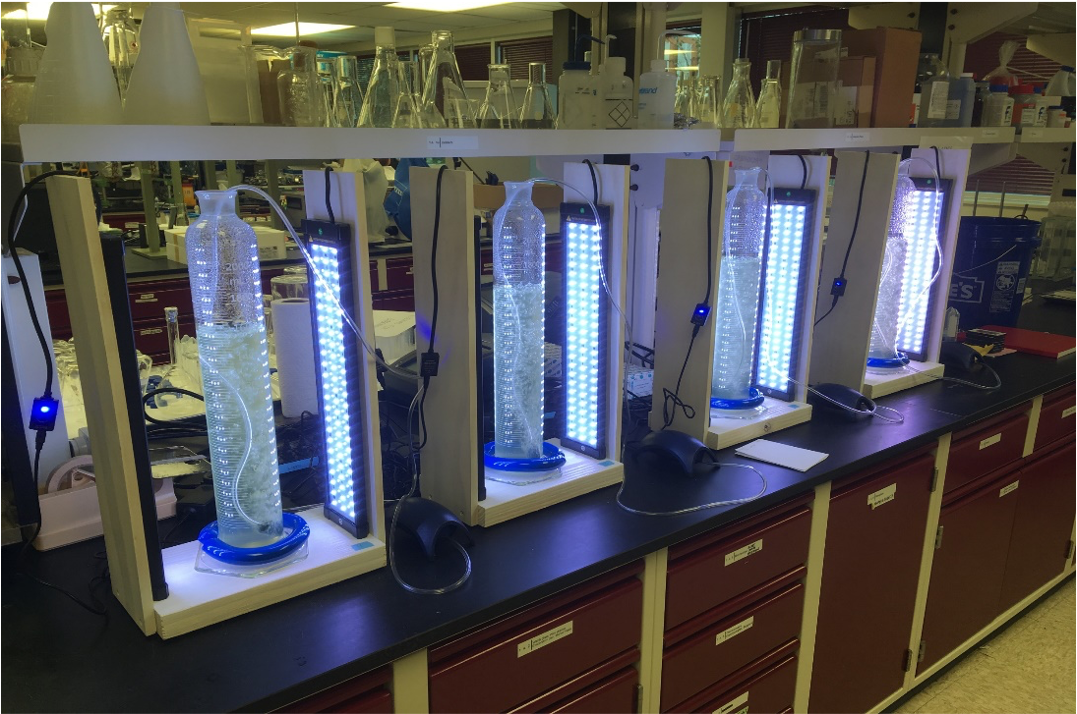 |
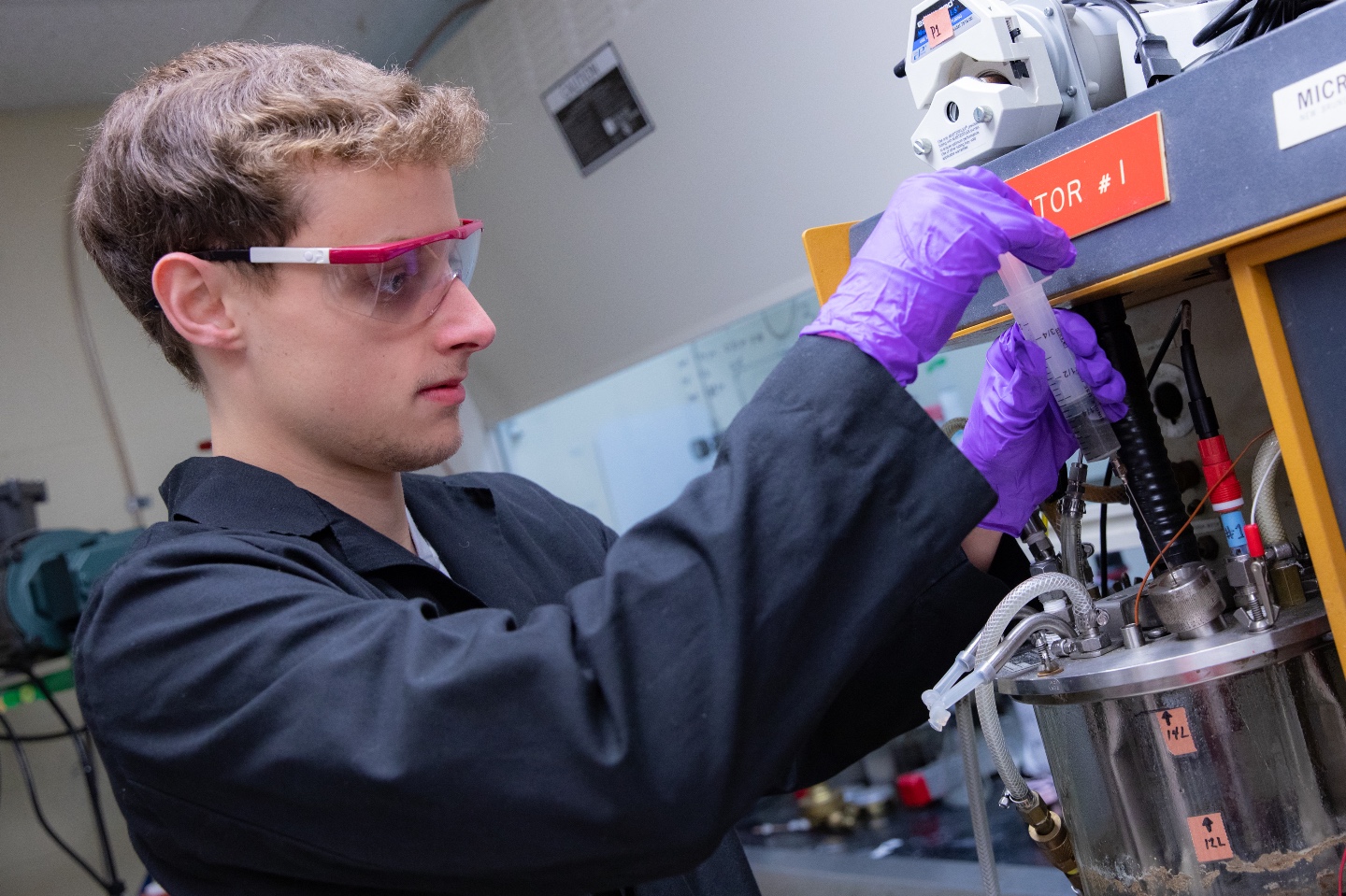 |
Civil Engineering - Geotechnical & Hydraulic Engineering Laboratory - Soil and Hydraulic Research
This recently renovated lab has many functions and offers various learning opportunities for students to get their hands dirty. Literally! Students learn about the physical and engineering principals of soil, such as soil type and strength. Flood studies in this lab are an important part a civil engineering education. Students use a large watershed table to perform experiments that demonstrate flow, erosion, and flooding. Learning about how water flows in the environment along with man-made situations is an extremely vital part of any student interested in a career in the environmental industry. There are many other types of equipment, models, and instruments for students to use in this lab. If you are interested in this type of research then Civil Engineering might be the best place for you. Schedule a tour and come and see for yourself!
 |
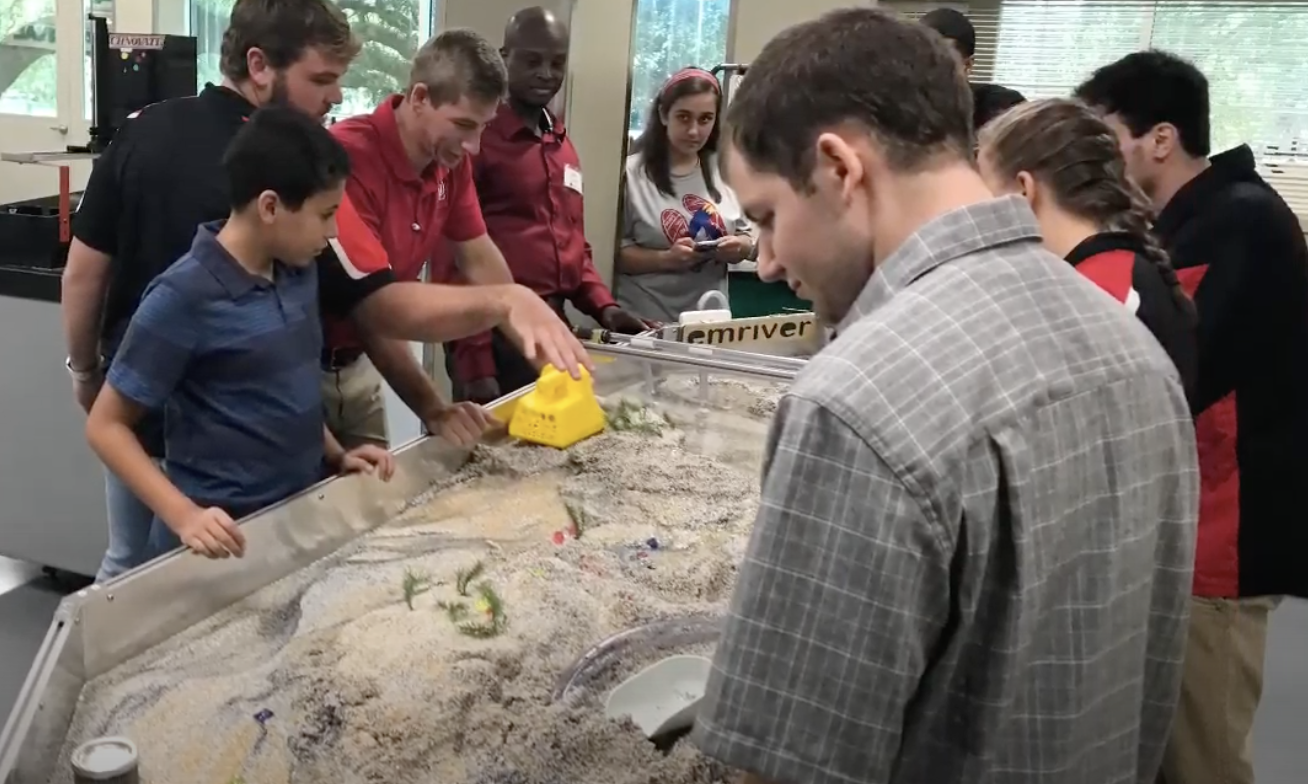 |
Electrical & Computer Engineering - Aerospace Electronics Research Lab - Cajun Advanced Pico Satellite Experiment, CAPE
The Aerospace Electronics Research Lab is the home of our Cajun Advanced Pico Satellite Experiment. It stems from NASA’s CubeSat Launch Initiative and provides a team of students the opportunity to research, design, develop, and maintain a low earth orbiting satellite. The CAPE Team is made up of mostly electrical engineering students and a few students from other departments. The only requirement to join is a desire to participate. The students volunteer their time to develop and build picosatellites along with other aerospace and mission related systems such as weather balloons and sensor buoys. Since the program's start in the early 2000's, NASA has launched two of CAPE's satellites into space! CAPE-3 launched in January 2021! If you like the idea of working on communication satellites, you should definitely visit the Electrical and Computer Engineering Department.
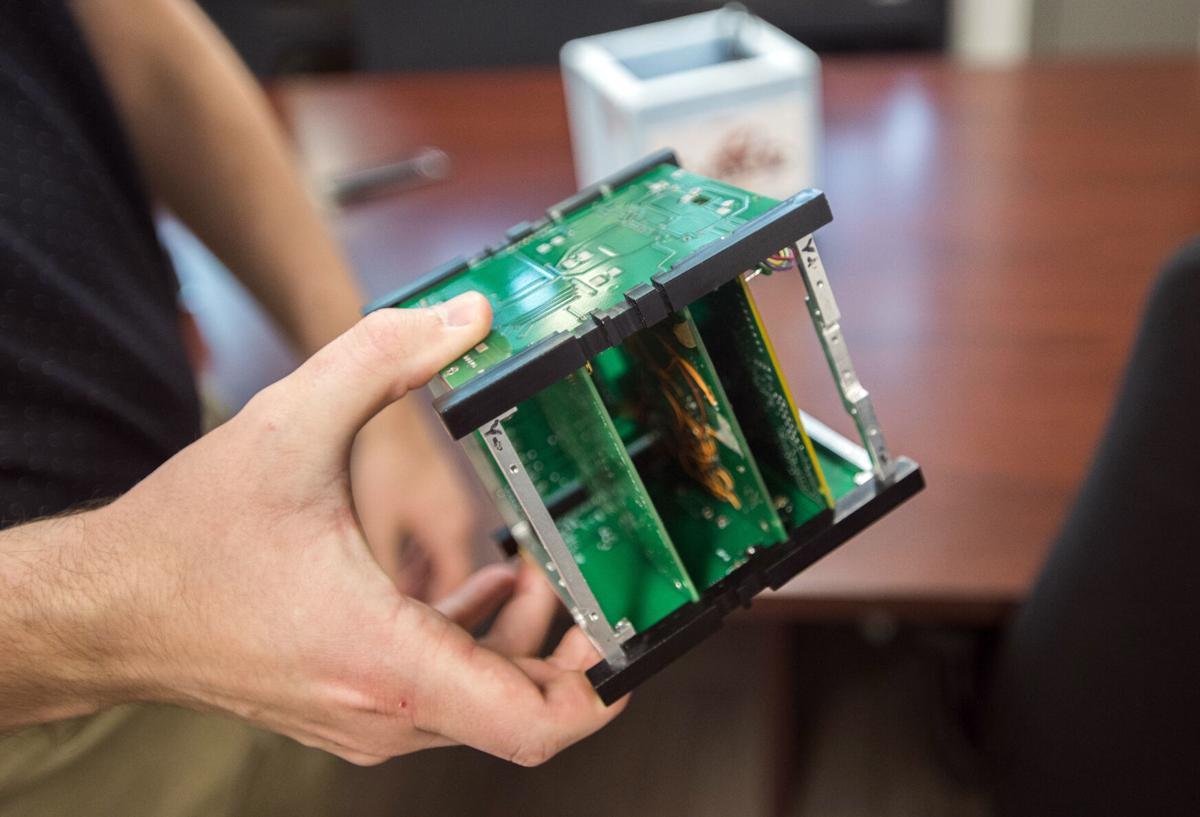 |
Engineering and Technology Management - Fluid Power Systems Laboratory - Hydraulics and Pneumatics Research
Have you ever wanted to know how a bulldozer is able to gracefully and quickly move large items with what looks like little effort? This is a favorite topic of our engineering technology students who would tell you that fluid power is the reason. Fluid Power is a technology used to transmit power from one location to another by compressing and expanding fluids such as liquids, air, gases, or mineral oil. Hydraulics (oil or water) and pneumatics (compressed air or gas) are the technologies that make up fluid power. Students build and test these systems by using hydraulics and pneumatics equipment. Once they learn how the systems work, they can apply their knowledge to everyday life by understanding the way that robotic arms or nitrogen shocks for off-road bikes work. There are many industries that use fluid power systems such as Aerospace, Automotive, Agricultural, Construction, Entertainment, Robotics, Mining, Material Handling, and Packaging, to name a few. Visit our Engineering and Technology Management page to learn more about this exciting degree program.
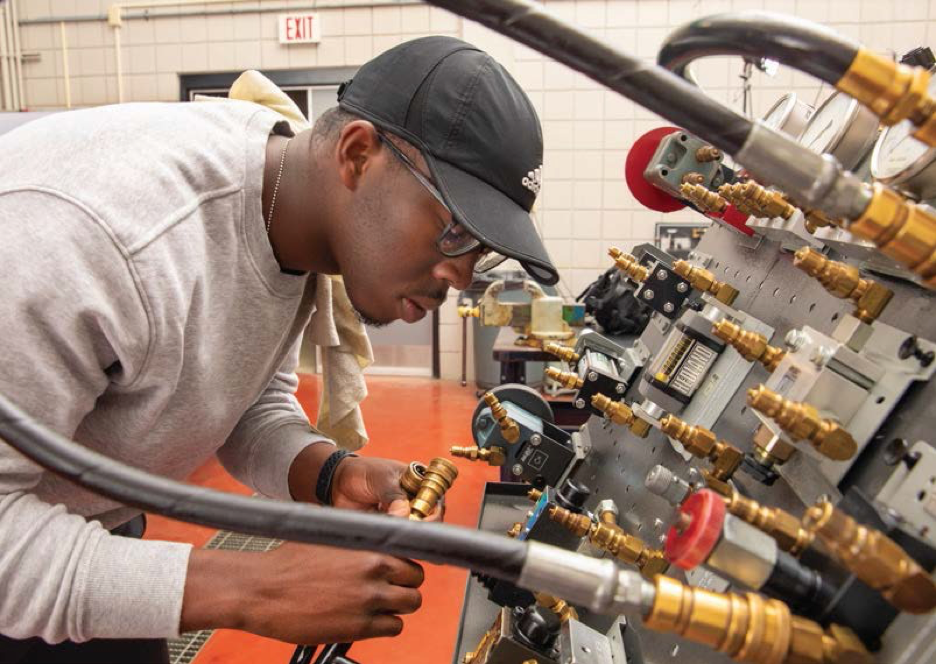 |
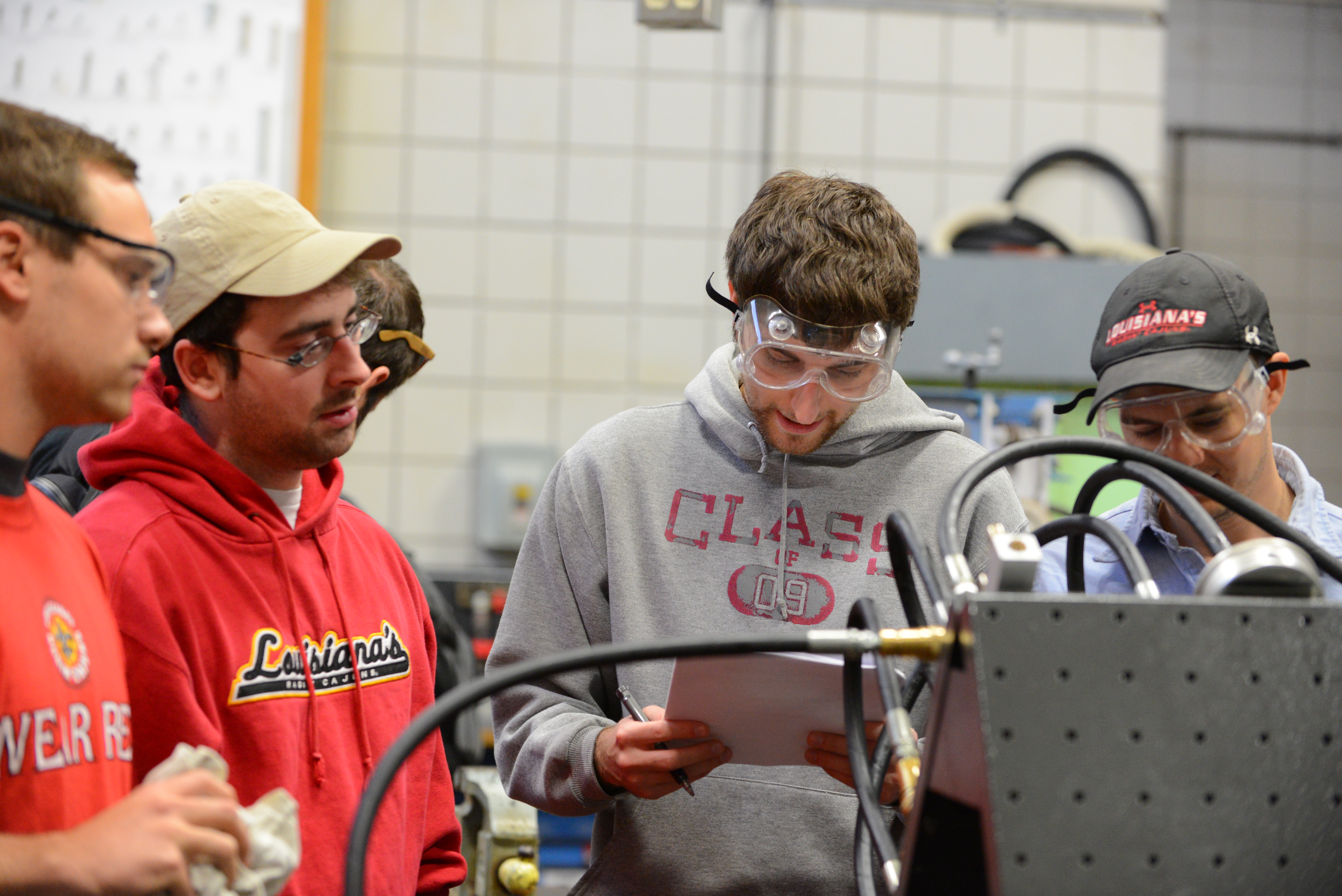 |
Mechanical Engineering - Ragin' Cajun Racing (RCR) Lab - RCR Team
The RCR Lab is the home of the Ragin' Cajun Racing Formula SAE Project. The group of students that work on this project call themselves the Ragin' Cajun Racing Team. The team is made up of mostly mechanical engineering students along with other students from the College of Engineering. This project allows students to design and build an open-cockpit FormulaSAE car. The finished car will be driven by one of the team members at a FSAE, Formula Society of Automotive Engineers, competition! There are no grades given for a completed car, but the reward for being a part of this team is priceless. All students work on the car in their spare time fueled by coffee and a love of all things automotive. If you are interested in learning more about the UL Formula SAE Team, visit their website here, or visit our Mechanical Engineering page to learn more about the department.
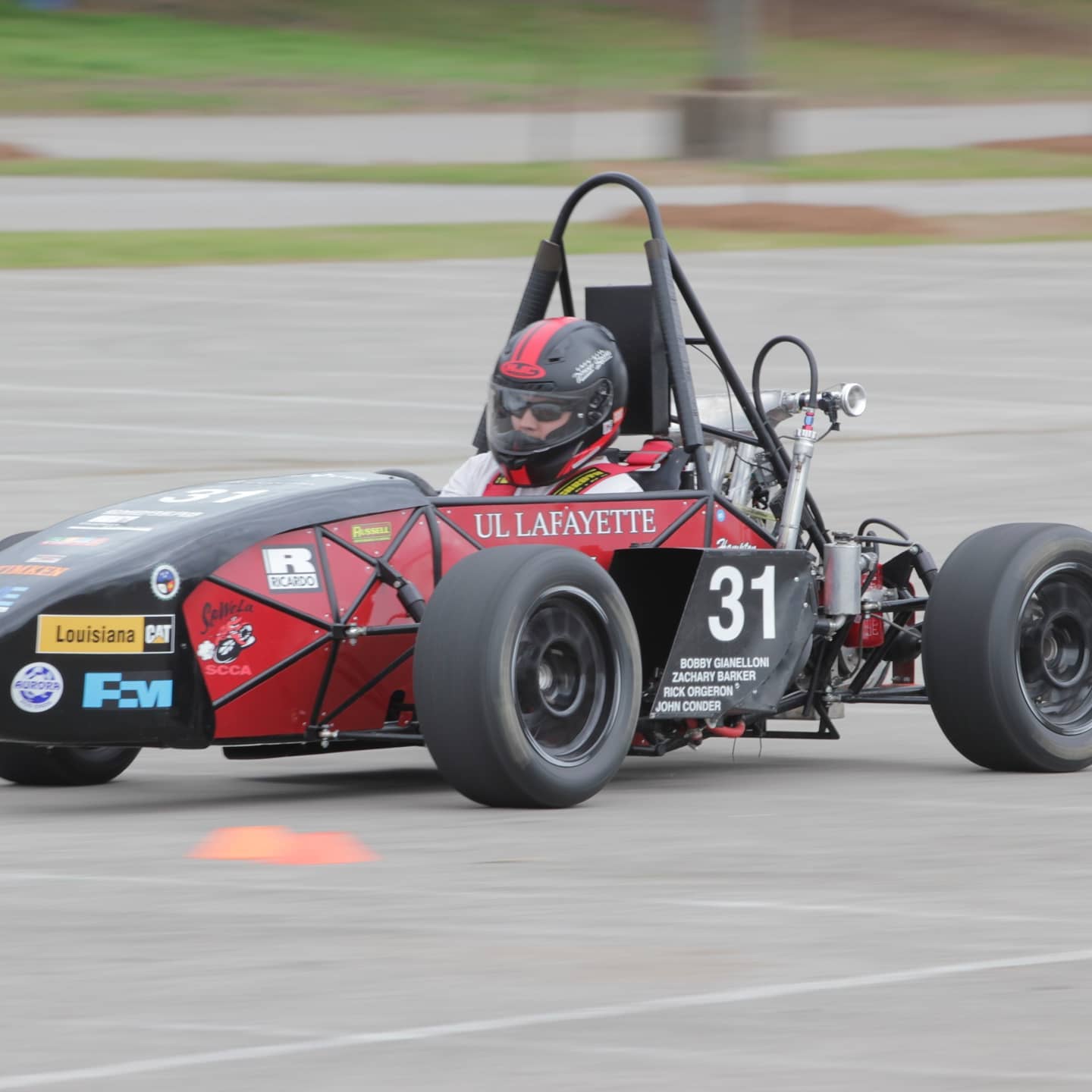 |
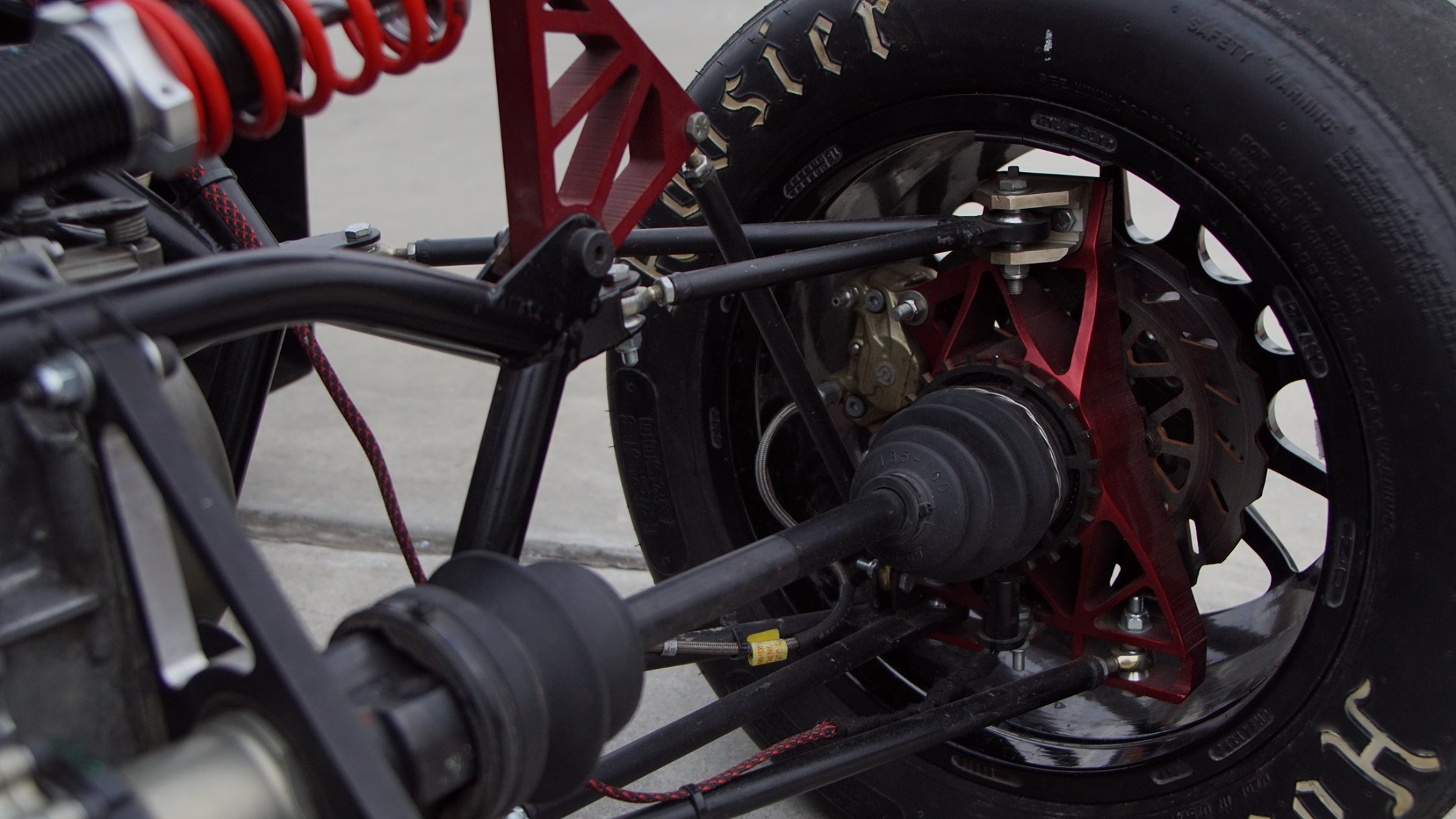 |
Petroleum Engineering - Drilling Engineering/Well Control Laboratory - Drilling and Well Control Simulations
The Drilling Engineering and Well Control Lab is one of our petroleum engineering students' favorite labs for many reasons. Classes in this lab give students a hands-on analysis of drilling and well control. The teaching equipment and instrumentation in the lab is identical to what most petroleum engineers use in the feild. Well control and drilling simulations give students an idea of what to expect in real world situation. We are the only petroleum engineering program in the nation that is an Accredited IADC WellSharp Well Control Provider! All these things allow students feel confident when they begin their careers because of the preparation given in not only this lab, but many others. Want to know more? There is a lot more to explore on our Petroleum Engineering page.
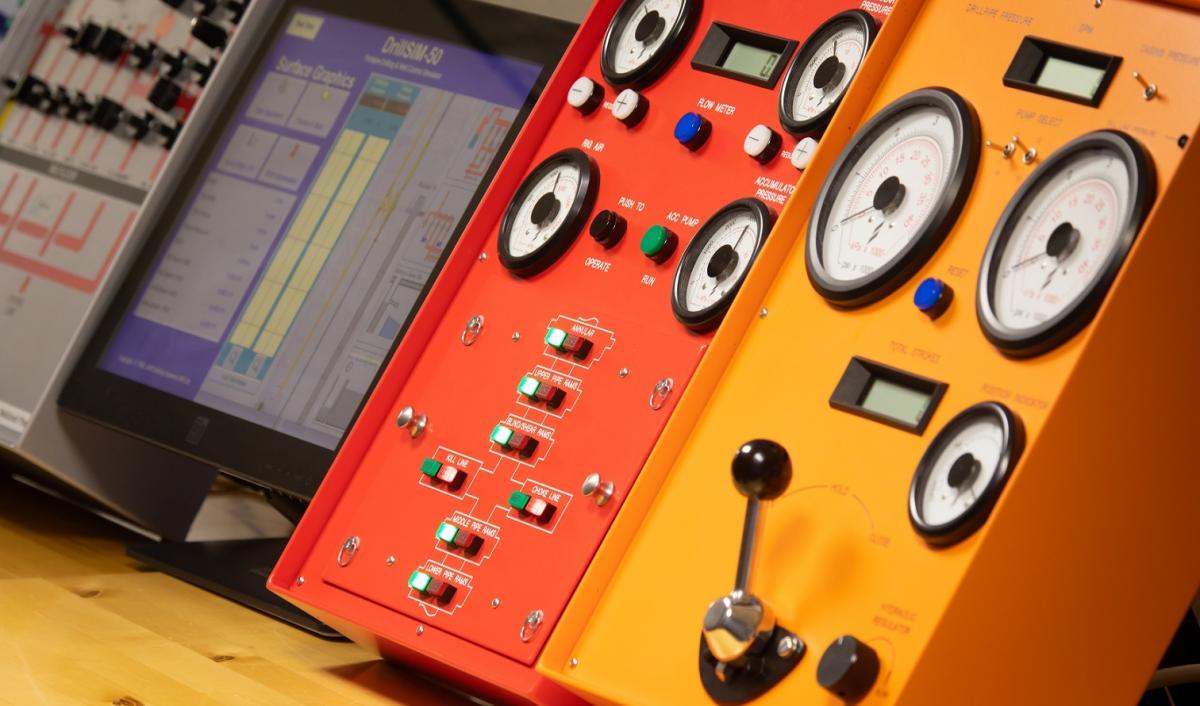 |
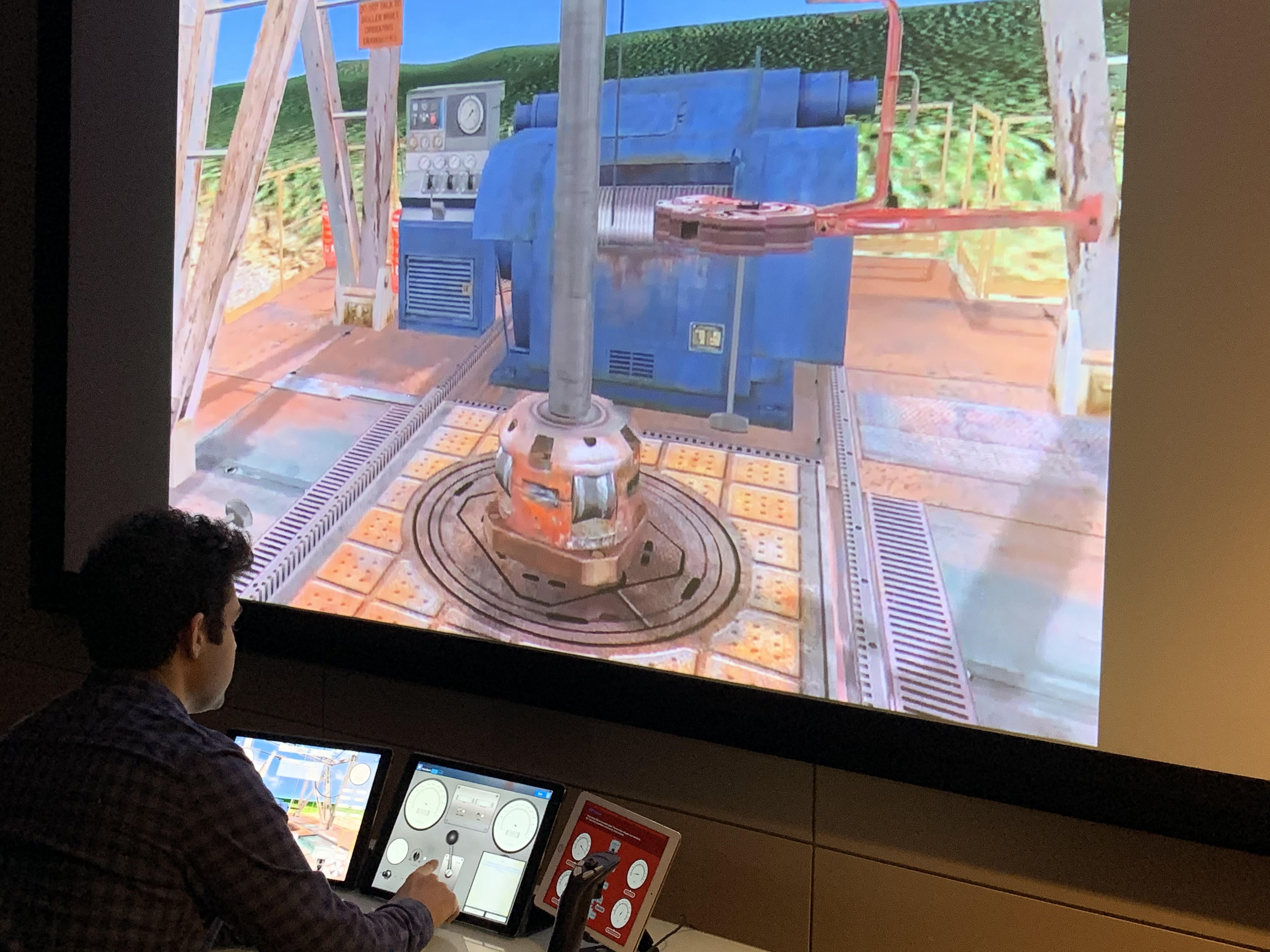 |






